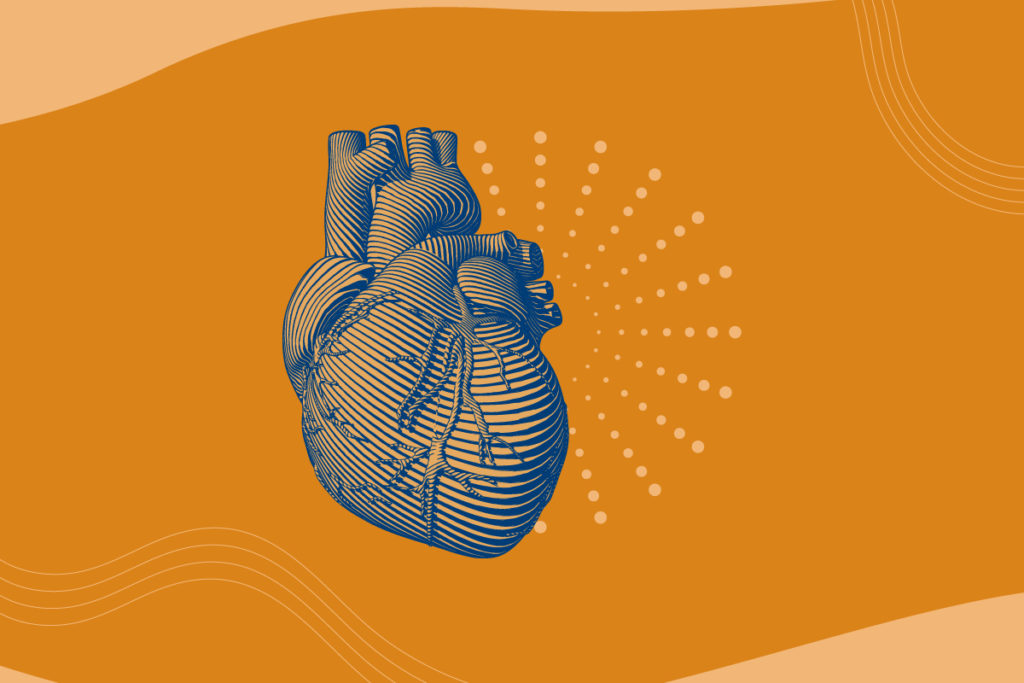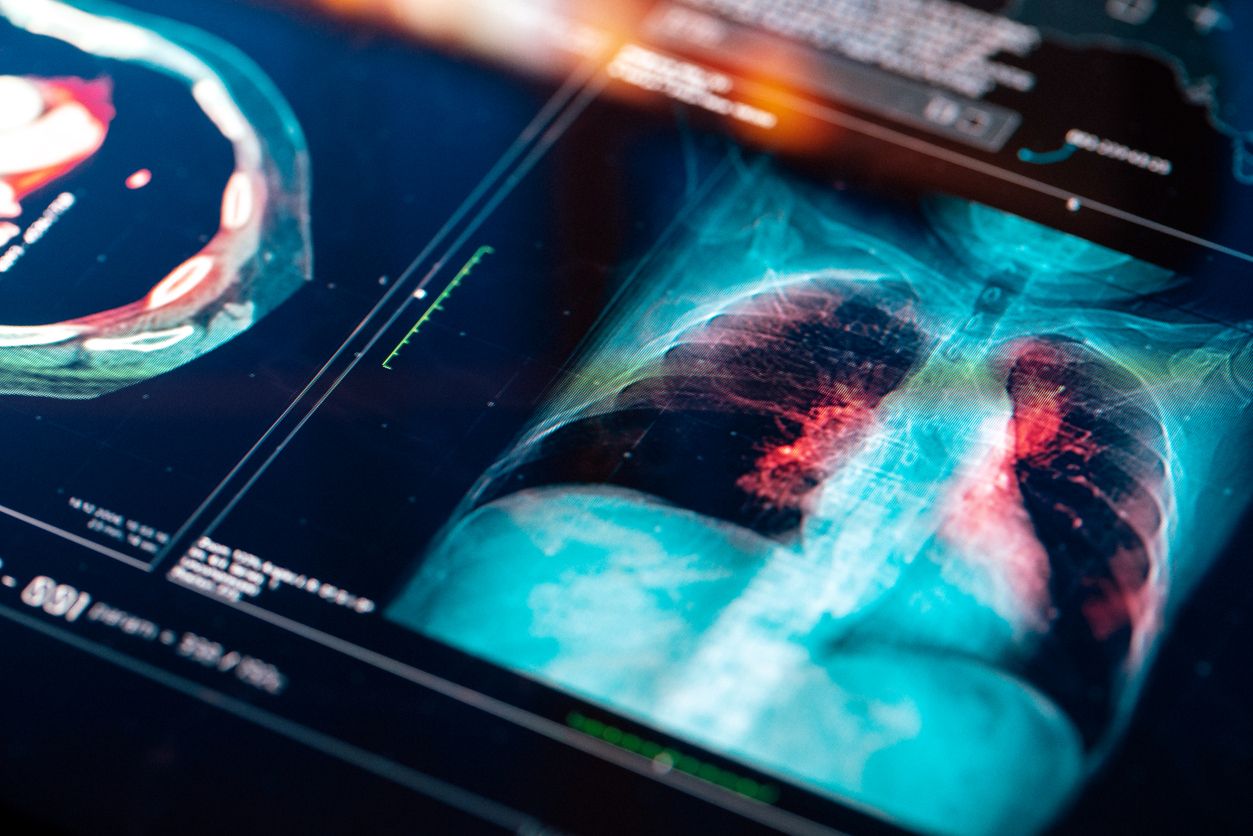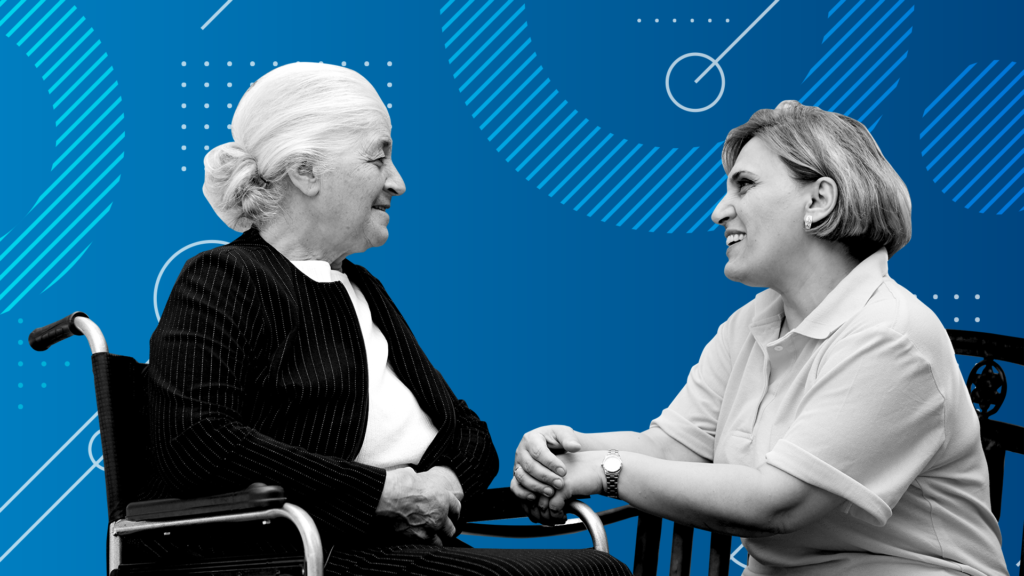
What Causes Pneumonia in the Elderly?
Updated on: August 2023
Reviewed by: Nancy Leahy, RN, APNP

Pneumonia is an illness that seems to affect seniors in a radically different way than it does people in other age groups. But does it actually target seniors the way it seems to? Find out more about what pneumonia is, what causes it, how to prevent it, and whether seniors contract it in different ways from people in other age groups. If you aren’t sure what pneumonia is or you are curious about why it’s such a concern in the world of elder care, take the time to learn more about this illness.
Find What You Need
What is Pneumonia?
It’s All About the Lungs
Before we start talking specifics about seniors and pneumonia, it’s important to understand exactly what this illness is from a physiological perspective. Pneumonia is an infection of the lungs that affects the tiny air sacs known as alveoli. In some cases, the alveoli become inflamed as a result of infection, which makes breathing difficult and makes the lungs function less effectively to oxygenate our blood. In other cases, the alveoli become infected and fill up with fluid such as pus. Alveoli are not designed to hold fluid. They’re designed to hold air. The presence of any fluid in the alveoli makes it impossible for our lungs to work at their full capacity. This makes pneumonia a very dangerous illness with serious potential consequences.
Multiple Causes including Older Age
One of the things that makes pneumonia so difficult to understand is that its causes are a bit difficult to pin down. There is no single cause of pneumonia and no single risk factor for the disease. Older age is one of several risk factors, though, which is why elderly people over age 65 are considered to be at particular risk for this type of infection. Young people, particularly infants, are also at great risk for pneumonia, as are adults with lung disease such as COPD. In seniors, these adult risk factors compound and pose an even greater threat.
Seniors Prone to Severe Pneumonia
Pneumonia can also be either mild or very severe and, in seniors, the infection tends to fall on the severe end of the spectrum. Mild pneumonia is often colloquially referred to as “walking pneumonia” because the people it affects generally feel only slightly under the weather and the infection itself is not serious enough to warrant hospitalization. On the other end of the spectrum, pneumonia can be severe enough to warrant emergency medical treatment and those who suffer from it may require oxygen therapy to make up for decreased lung capacity.
Fluid in the Lungs
Many people believe that pneumonia is a more severe version of the flu, but this isn’t entirely correct. Viral, bacterial, parasitic, and even fungal infections can cause the buildup of lung fluid known as pneumonia. There is a specific bacterium Streptococcus pneumoniae that is responsible for many cases of bacterial pneumonia, but it is not the only cause in spite of its name. Essentially, anything that causes inflammation and fluid accumulation in the lungs can be considered to be a cause of pneumonia. Even liquid inhaled while drinking is technically a cause of pneumonia.
Culmination of ‘Other’ Illnesses
So, while it’s not true that pneumonia is simply “a bad flu,” there is some truth in that general idea. Influenza, also known as the flu, can be accompanied by pneumonia, which is often referred to as “secondary bacterial pneumonia,” though the cause can be viral as well. When flu causes a high degree of fluid buildup in the respiratory system, whether it’s the sinuses or the chest, it can lead to “viral pneumonia” infection in the lungs. Pneumonia generally piggybacks other illnesses and can become far more severe and life-threatening than the initial illness itself was. This means that there are myriad different potential causes of pneumonia and no single way to address those causes.
Are Seniors at Special Risk for Pneumonia?
Every elderly person’s individual risk factor for pneumonia may be different. Below are some of the various risks that can lead to pneumonia.
Older Age
As mentioned above, age is a risk factor for pneumonia, and seniors are generally seen as being at special risk for pneumonia. Our immune systems tend to be less effective as we age and this introduces a general sense of vulnerability for seniors. This is the starting point from which many different causes branch out.
Heart Disease and Other Serious Health Conditions
Heart disease and any illnesses or associated with smoking can cause particular vulnerability and, again, this is a risk factor that can be present in younger adults that is made worse by the general vulnerability presented by older age. In general, seniors who suffer from serious health conditions are more at risk for pneumonia infection.
Inability to Strongly Cough
There are some potentially surprising risk factors for seniors. For example, seniors who cannot cough very effectively after suffering a stroke or as the result of general bodily frailty may be at particular risk for pneumonia. The ability to expel the source of an infection in the lungs can often prevent the onset of pneumonia and coughing is the mechanism through which our bodies can remove these infectious elements. If you can’t cough, you can’t be very effective at ridding yourself of infectious elements in your lungs. Therefore, extra care must be taken with seniors who cannot produce a strong cough.
Anything that Affects the Lungs
Contagious illness is a common cause of pneumonia in seniors, and the flu isn’t the only one that’s of concern. Even a common cold can cause pneumonia in a vulnerable senior. Essentially, any underlying issue that affects the lungs can bring about an infection that causes inflammation or fluid buildup in the lungs. That means that other seemingly mundane potential sources of pneumonia, including mold spores in the home, can cause serious problems for seniors as well. This is just one reason why a clean living environment is so important for people aged 65 and up.
Infectious Environments
Unfortunately, seniors who live in institutional settings such as hospitals and nursing homes are at higher risk of death from hospital-acquired pneumonia than others in the same age group, but there are a few things to keep in mind here. First of all, healthcare institutions tend to be places where sick people congregate so exposure to pneumonia is more of a risk in a hospital than it is in, say, the average grocery store. Additionally, many of the seniors who live in institutional settings are already suffering from another illness or have immune systems that are otherwise compromised. An otherwise healthy senior who moves into an assisted living facility isn’t likely to immediately contract pneumonia after she gets settled in her new home. Overall, it’s important to be well informed and mindful about the risks pneumonia presents to elderly people. It’s not just the flu that brings about potentially deadly pneumonia in seniors. This is a real disease with real consequences, and those consequences can include death. Seniors are at higher risk for this outcome than most other age groups with the exception of the very young. Every senior and every person who takes care of seniors should be aware of the signs and symptoms of pneumonia. As with most infectious diseases, catching pneumonia early can be the key to avoiding a devastating outcome.
Signs and Symptoms of Pneumonia
What are those signs and symptoms? One of the most important to be aware of is the presence of any risk factors outlined above. Seniors who have the flu, are having trouble coughing or are immunocompromised and living in an institutionalized setting are all at particular risk for pneumonia. Risk factors help to put this illness in perspective. For example, a senior who doesn’t have any risk factors but experiences a sudden coughing fit likely does not have pneumonia. However, that doesn’t mean that the senior without any current risk factors won’t develop those risk factors over time. A persistent cough is a cause for concern because it’s a potential sign of an illness that precedes pneumonia.
Productive Coughs
Coughing is also a symptom of pneumonia itself, but it tends to be a productive cough that brings up green or yellow fluid such as phlegm or pus due to the presence of this fluid in the airway. Sputum that comes up from coughs may also be bloody. Pneumonia coughs aren’t always productive—remember that inflammation rather than fluid can cause pneumonia in some cases. Coughing also isn’t a symptom in every single pneumonia case. This is particularly true of seniors who are malnourished or don’t have the ability to cough. So while coughing is an important symptom to be aware of, it’s not the only sign that a senior has come down with pneumonia.
Weakness and Confusion
Other symptoms to look out for include confusion and weakness or a lack of energy. Confusion is generally specific to seniors with pneumonia rather than younger patients, so doctors may assess this symptom in particular. The fact that the lungs aren’t absorbing oxygen means that the body as a whole, including the heart, muscles, and brain, may not be functioning at their full capacity. This lack of oxygen can even cause lips and fingertips or toes to turn blue and these alarming symptoms are the sign of a serious infection.
Fever and Chills
Fever and attendant chills may also be an issue and caretakers should be on the lookout for fevers that suddenly spike after an illness that seemed to have been getting better. According to the Mayo Clinic, pneumonia can also cause an abnormally low body temperature in patients over the age of 65.
Chest Pain
Chest pain is also common with pneumonia and may be more noticeable to seniors who cannot cough. In fact, pain is often so severe that prescription pain medication is part of a pneumonia treatment plan for seniors.
Pneumonia Prevention and Techniques
Is it possible to prevent pneumonia? Well, yes and no. There are certain steps you can take to reduce the likelihood of infection, but pneumonia is still a potential issue for seniors who are at risk or who develop infections in the upper or lower respiratory system. There aren’t any ironclad, 100% guaranteed methods of preventing pneumonia, unfortunately. Pneumonia is not an inevitability, though, so you’ll want to take all the necessary steps to avoid it.
Vaccination
Vaccination is an option for pneumonia and seniors should actively pursue inoculation, especially if they have underlying conditions that can increase the risk of lung infection. Flu vaccines are also a good idea as a preventative measure not only against the flu but also against pneumonia, which can follow a bout of flu. This gets at something important in the concept of pneumonia prevention—it’s important for seniors to avoid getting sick in the first place if they can. Avoiding illness will help reduce the chances that an illness will set the stage for pneumonia.
Avoid Close Contact with Others Who Are Currently Ill
Extra care should be taken to avoid spreading germs to seniors. This means that any visitors, from grandchildren to home care workers or friends, should be in good health when they come to an at-risk senior’s home. Exercise caution with all seniors who are older than the age of 75 as well, even if they seem pretty healthy. If you have a weekly dinner appointment at your 85-year-old mother’s home, for example, you’ll want to skip the week if you happen to have the flu or another illness that can cause coughing and chest or sinus congestion. Visitors who are currently in good health should wash their hands frequently or make use of a hand sanitizer.
Wear a Medical Face Mask When Visiting High-Risk Environments
When seniors need to travel to other locations in which they might be around sick people, they should take extra care to avoid becoming ill. The level of care a senior takes should correspond with their relative level of vulnerability to pneumonia. Seniors who have any underlying risk factors should be extremely cautious when traveling to a hospital, a doctor’s office, or even a school with a lot of young children. These at-risk seniors should wear a medical-grade face mask with the power to filter out viral and bacterial microbes. Frequent hand washing is also a smart step for seniors of any age and risk level. Staying healthy on a consistent basis really is an effective way of avoiding infection.
Keep Your Home Clean and Mold-Free
Seniors’ homes should also be kept as clean as possible. This may mean that some seniors need to seek out extra assistance in keeping their homes clean. Additionally, any musty, moldy or mildew smells should be examined and remedied. It’s also important for someone to look out for a senior’s health and be aware of sudden changes like the rapid onset of fatigue or confusion. If a senior in your life falls ill, help them seek proper medical care early and check in with them periodically to make sure recovery is proceeding normally.
Providing a Proper Care for a Senior with Pneumonia
Pneumonia is diagnosed through a variety of means that typically include a chest x-ray, which shows blockages in the lungs and helps doctors determine the extent of the infection. Blood tests may also be part of the diagnosis. Doctors may use antibiotics and other treatments to fight against pneumonia, though some antibiotic-resistant strains of bacterial pneumonia have become apparent in recent years. Regardless of the root cause and potential treatment, any caretaker or loved one who suspects that a senior has pneumonia should seek immediate medical care. Caretakers and loved ones should also encourage family members over 65, especially those with risk factors, to get pneumonia vaccinations or to ask their doctors about the vaccine. Doing the same with flu shots will be helpful as well.
Take all Your Medications
After a senior has been diagnosed with pneumonia, they will need to take all medications as prescribed. This often means continuing to take the medication according to doctor’s orders even as symptoms start to clear up. Antibiotic resistance is an issue in part because unfinished antibiotic courses leave some infectious bacteria alive and able to survive treatment. Help seniors avoid this issue—and the potential for re-infection—by ensuring that doctor’s orders are followed to the letter.
Hospital Treatment
Many seniors with pneumonia end up being admitted to the hospital, where they receive oxygen, fluids, treatment and pain medication. Patients can stay in the hospital for a week or more as doctors work to help the body heal the infection. Mild pneumonia doesn’t typically require hospitalization, but doctors may decide that a particularly vulnerable senior needs round-the-clock care to recover or to prevent the illness from worsening. Seniors who have existing health conditions that can amplify the effects of pneumonia, such as diabetes or COPD, may be pre-emptively hospitalized as well.
Rest, Hydration and Careful Monitoring
Rest and hydration at home are two basic steps to take after hospital discharge or in the case of seniors who don’t need to be admitted. Both groups of seniors will also need careful monitoring to ensure the pneumonia infection doesn’t get worse or return. Caretakers and family members should stay mindful of symptoms and be aware that pneumonia can be persistent and difficult to treat in elderly populations.

